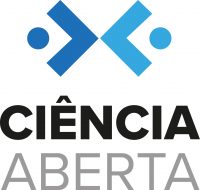Bibliometric Analysis of Smart Cities and Tourism Studies with Visual Mapping Technique
Keywords:
Tourism; Smart City; Bibliometric; Visual Mapping.Abstract
Smart cities, where technological innovations are used and which provide easy access to information in the city where both local people and tourists are located, may have the potential to become prominent cities in terms of tourism. In the study, the bibliometric method with the Vosviewer package program was used. 1050 studies obtained from the Web of Science data platform were examined, which contain smart city and tourism. The obtained data were analyzed using the visual mapping technique. According to the collocation analysis made on the keywords, twelve different themes were determined and grouped as smart city, tourism, smart tourism destination, tourism. Within the scope of the research, most of the studies are congress papers. In the literature, it has been determined that the subject of the smart city is mainly associated with the concepts of destination, internet, sustainability, accessibility, big data, tourism. According to the findings, the studies started in 2000 and increased in 2020. Engineering, computers and tourism are the disciplines where most studies are done.
Downloads
Published
How to Cite
Issue
Section
License
Autores que publicam nesta revista concordam com os seguintes termos:
Os Autores mantém os direitos autorais e concedem à revista o direito de primeira publicação, com o trabalho simultaneamente licenciado sob a Creative Commons Attribution License que permitindo o compartilhamento do trabalho com reconhecimento da autoria do trabalho e publicação inicial nesta revista.
Autores têm autorização para assumir contratos adicionais separadamente, para distribuição não-exclusiva da versão do trabalho publicada nesta revista (ex.: publicar em repositório institucional ou como capítulo de livro), com reconhecimento de autoria e publicação inicial nesta revista.
Autores têm permissão e são estimulados a publicar e distribuir seu trabalho online (ex.: em repositórios institucionais ou na sua página pessoal) a qualquer ponto antes ou durante o processo editorial, já que isso pode gerar alterações produtivas, bem como aumentar o impacto e a citação do trabalho publicado (Veja O Efeito do Acesso Livre).








